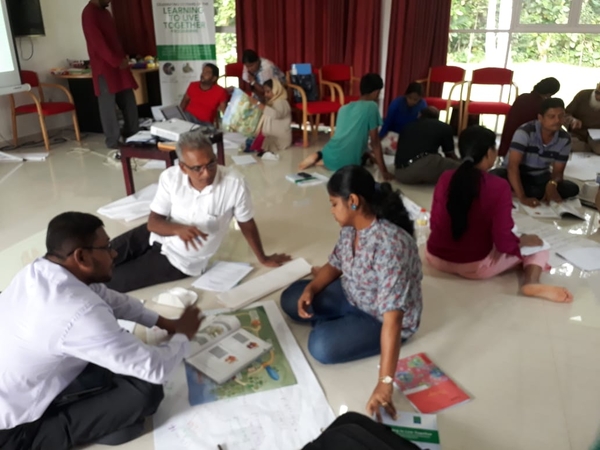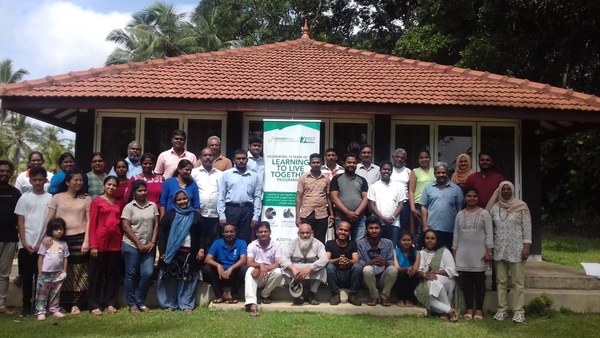
Arigatou International Geneva in collaboration with the Sarvodaya Movement – Sri Lanka organized a facilitator training workshop (FTW) for representatives of religious communities, government, faith-based and civil society organizations in Colombo from 11 to 15 July 2018. This was the second FTW with open applications held by Arigatou International Geneva since 2012.
The workshop was conducted with a focus on how to use the Learning to Live Together Programme and integrate it in organizational programs to contribute to peace and reconciliation in Sri Lanka.
Since the end of the armed conflict, nine years ago, there has been increased tension among different religious groups in the country. It is against this background that the workshop aimed at working with religious communities and educators by looking at the identity issues that have framed these conflicting dynamics.
Besides the objectives of how to help children and youth grapple with the challenges of the Sri Lankan context and to provide them with opportunities to unlearn violence, to reflect on how they see themselves and others, and how they can be supported to engage positively with one another across ethnic and religious divides, the workshop focused on the ethical demands to bridge the divides between ethnics and religious communities to provide transformative learning experiences for children.
A diverse group of 30 participants from Buddhist, Christian, Hindu, and Islamic faith groups, as well as participants that identified as Humanist and Multi-faith, participated in the workshop. Among the participants were three representatives from the Ministry of Education including the Director of the Peace and Reconciliation Unit (PERU); two Directors’ Assistants from the Office for National Unity and Reconciliation (ONUR), and its Director of Educational Programmes.
This workshop was unique, as it brought together not only government stakeholders, but also representatives from faith-based organizations and civil society such as Shanthi Sena, the Colombo Diocese of the Anglican Church, the Walpola Rahula Institute, Muslim Aid International, Caritas Kurunegala, LEADS, Samadana, trainers from the Sahodara Pasal Program, and the Sarvodaya Movement, as well as two participants from the Maldivian Network for Empowering Women.
The participants had the opportunity to reflect on how identity perceptions at an individual level can contribute towards larger societal conflict dynamics, and how an approach on ethics education can contribute to transform those realities. In this regard, the workshop enabled a simulation activity to put the learnings into action. Participants received feedback by engaging in dialogue and exploring the diverse points of views of their counterparts.
During the workshop, participants reflected on the issues affecting the social cohesion in Sri Lanka, their individual and collective responsibilities, the current ethical demands in the country, and the importance of nurturing spirituality in children and youth.
The workshop also contributed to strengthening the Global Network of Religions for Children (GNRC) in Sri Lanka with the intention to further collaborate with the participating organizations and individuals to implement Learning to Live Together related programs for children and youth.
We would like to express our gratitude to the Sarvodaya Movement for co-hosting the workshop; to Dr. Vinya Ariyaratne for his unwavering support, and to the international trainers’ team: Mr Suchith Abeyewickreme (Sri Lanka), Ms Nang Loung Hom (Myanmar/Sri Lanka), Ms Saydoon Nisa Sayed (South Africa), and Ms Pavithra Rajagopalan (India) for leading the workshop. We thank the participants as well, for their interest and enthusiastic participation.

